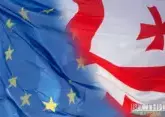The 2014 European Parliament election was a breakthrough moment for radical parties on the left and right. The Alternative for Germany, the Sweden Democrats and Spain’s Podemos all won their first seats that year. And Syriza from Greece won six seats, up from one in 2009.
Politico reports in its article Europe’s new political players that since then, more than 100 new parties have been created in EU countries — some of which are set to send their first members to the European Parliament after voters head to the polls in May. Who will break out in 2019? Here is POLITICO’s guide to the new parties to watch.
The Alternative for Germany
Yes, the far-right German party won seven seats in 2014, but since then it has lost all its MEPs to defections or national politics. The party, which has now decided to campaign to leave the EU, is on track to win 13 seats, according to POLITICO’s Poll of Polls.
La République En Marche
French President Emmanuel Macron’s political party may be the most disappointing newcomer. Where Europhiles once hoped it would rake in as many as 30 seats, forming the nucleus of a new pro-EU coalition of liberals, moderate social democrats and centrist Christian democrats, the party is now on track to win just 19 seats. Meanwhile, domestic pressure — most recently from Yellow Jacket protesters — has distracted Macron from forming alliances outside of France. The ray of light for Macron: His seats might be needed for the formation of a broad, pro-EU majority in Parliament. That would make him a weakened kingmaker, but a kingmaker nonetheless.
Poland’s insurgents
Poland is home to two new movements that could steal seats from the country’s most recent ruling parties: Law and Justice and Civic Platform. The far-right Kukiz'15 party, led by a former punk rocker, won 42 seats in the Polish parliament in 2015, but has struggled to maintain coherence. It is on track to win four of Poland’s 52 seats in the European Parliament and join an alliance that includes Italy’s 5Stars. Another movement, situated on the center left and led by former Słupsk Mayor Robert Biedroń, is not yet registered as a party. Opinion polls suggest it could win five seats if it does enter the race.
The Czech Pirate Party
The Green-aligned political party is in a back-and-forth race with the conservative Civic Democratic Party for second place in Czech polls. The Pirates are on track for their first four MEP seats, putting them alongside the German Greens as the environmentalists’ biggest success story in 2019. The far-right Freedom and Direct Democracy party is another noteworthy new Czech party set to win its first seat.
Romania’s anti-corruption crusaders
Two new parties are in talks to run together on an anti-corruption platform in the May election. PLUS, former Prime Minister Dacian Cioloș’ party, has already chosen 43 MEP candidates (for just 33 Romanian seats). The other party is Save Romania Union, the third-largest in the Romanian parliament. Together, they would be on track to win 18 percent of the vote, and six seats.
Latvia’s neophytes
Three out of five of Latvia’s highest-polling parties didn’t exist five years ago. Who Owns the State?, the New Conservative Party and Movement For! are each set to win one of Latvia’s eight seats in Parliament.
Slovakia's low-turnout open door
Slovakia has shockingly low voter turnout in the European Parliament election: just 13 percent in 2014, with only 6 percent of under-30s voting. Any new party that can seize public attention in the weeks before the vote has a chance of attracting a chunk of the abstaining 87 percent and shaking up Slovakia’s results. Those mostly likely to do so are the right-wing People’s Party of Our Slovakia (Kotleba ) and Sme Rodina, each currently polling at 9 percent.










